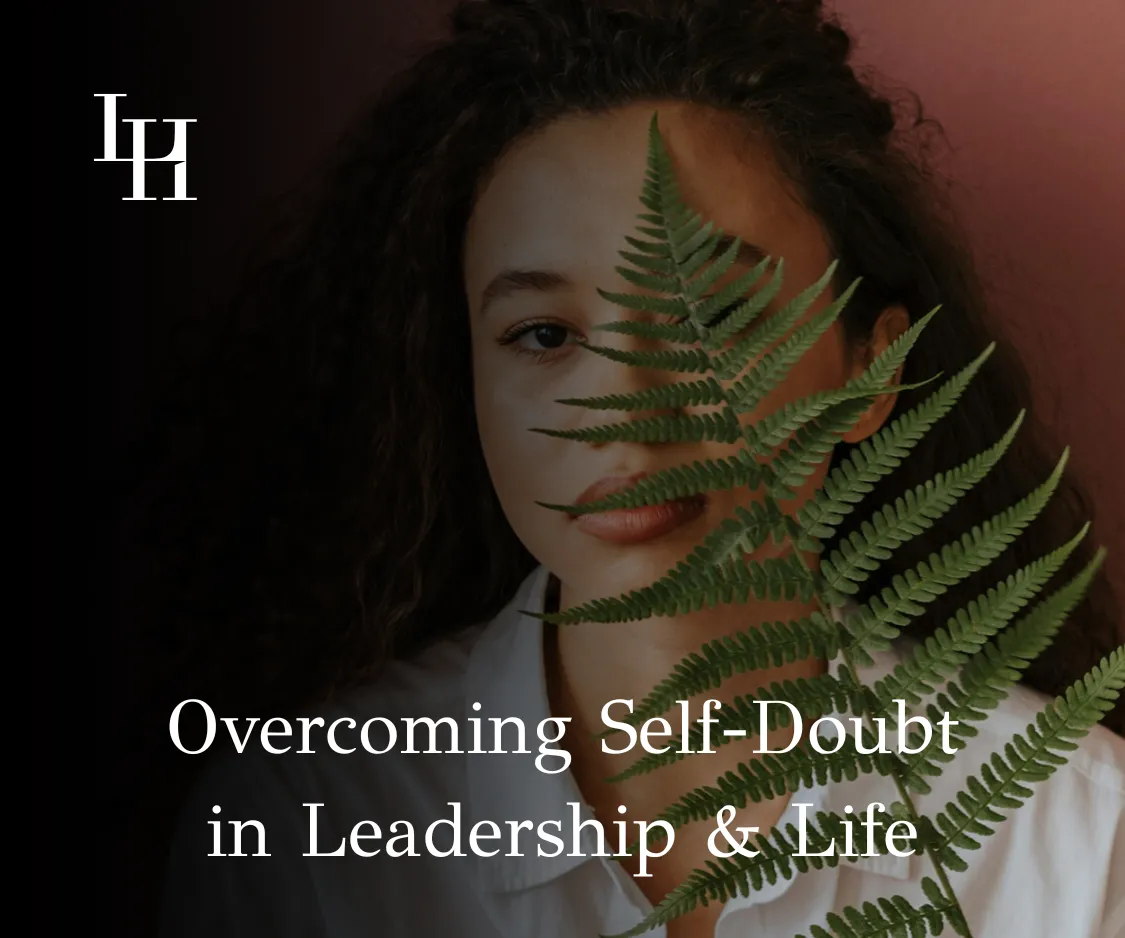
Overcoming Self-Doubt in Leadership & Life
Overcoming Self-Doubt in Leadership & Life
Self-doubt is not the enemy. It isn’t a sign of weakness or incompetence. More often, it’s a signal that you are stretching - moving beyond the familiar and stepping into the terrain of growth.
In the daily work of leading, self-doubt can feel like something we’re not supposed to have. We tell ourselves we should be more confident, more certain, more expert. We compare our inner uncertainties to others’ polished exteriors. And in that comparison, the self-doubt can grow.
Every leader I’ve worked with experiences self-doubt. Not just early in their career. It’s part of the ongoing process. The aim isn’t to eliminate it - what matters is how we respond to it.
If we interpret self-doubt as proof we’re not enough, we tend to shrink. We hold back a needed idea. We delay a hard conversation. We hesitate to take our seat at the table.
But when we meet self-doubt with curiosity instead of judgement, we gain access to something more grounded. We can ask: What is this doubt trying to protect me from? What part of me is feeling uncertain here, and what does it need? From that place, we can respond with presence, creativity and expansiveness, rather than defensiveness and contraction.
Self-doubt often arises in the space between our values and the status quo. Showing up when we are trying to lead in a way that feels more true to who we are - more values-driven, more human-centered - while working in environments shaped by different norms. That tension can bring up uncertainty, not because we’re off track, but because we’re forging a different path. And even when that path is forged - when we’ve made the brave move or brought something meaningful into the world - self-doubt often creeps back in, whispering that we won’t be able to do it again.

Elizabeth Gilbert spoke openly after the global success of eat pray love about the immense pressure she felt - to create something equally beloved - and how that pressure fed her self-doubt. In her TED Talk and later in Big Magic, she shared how she eventually chose to keep creating anyway, not by pushing the fear away, but by befriending it. That kind of honesty reminds us: even the most visible, accomplished people grapple with these same inner voices.
Instead of silencing your self-doubt, get to know it. Let it be a guide, not a saboteur. Let it point you toward your next step.
Courageous leadership doesn’t require the absence of self-doubt. It asks us to build the inner steadiness to keep showing up - with our questions, our vision, and our full, human selves.
You don’t have to wait for the doubt to go away. You only have to learn to listen to it differently - and let it deepen your clarity, not cloud it.
Lisa ♥️
If you're navigating this terrain and seeking grounded support along the way, working with a life coach can be a powerful companion on the journey. As a top UK life coach, I help individuals build confidence in their leadership, reconnect with their inner wisdom, and step into their roles with clarity and courage. If that sounds like the support you need, I’d love to connect.
